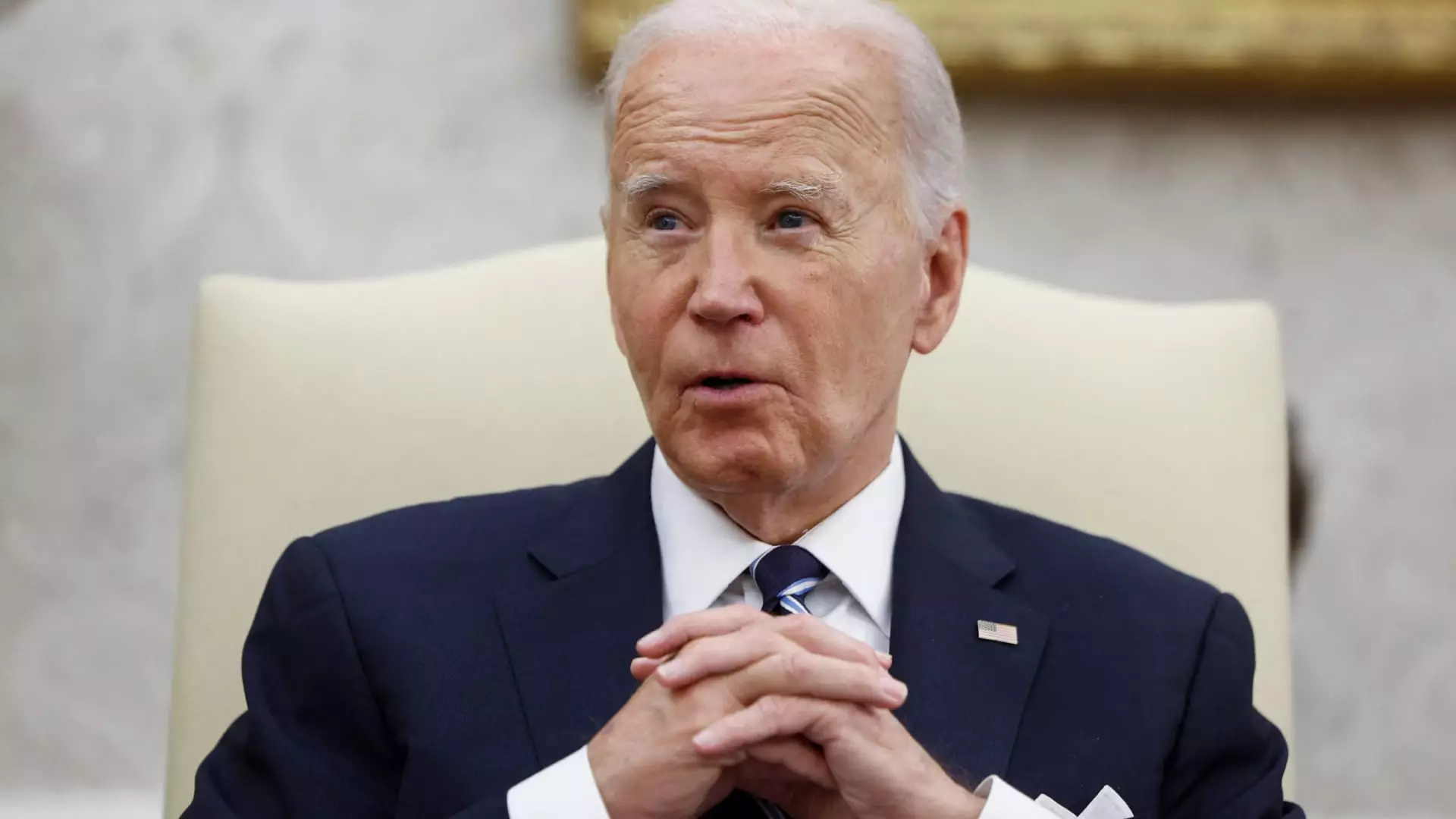As the calendar inches closer to the end of the year, the battle over government funding reflects not just fiscal urgency but also deep-seated political dynamics. With the looming deadline of December 20 for a new funding agreement, lawmakers in Washington face the dual challenge of preventing a government shutdown and navigating a politically charged environment as the nation inches toward pivotal elections. The complexities of this situation highlight the intricate dance that both parties must perform to address fiscal responsibilities while catering to electoral strategies.
The term “lame-duck” refers to the period after an election when outgoing lawmakers continue to serve until their successors take office. This unique timeframe presents both opportunities and challenges. Legislators are often keen to push through last-minute priorities, but the limited window—just five weeks this year—leaves little room for comprehensive legislation. The current Congress has yet to reach an agreement on any of the twelve appropriations bills essential for funding federal agencies. This stalemate raises pressing questions about how the government will navigate its financial obligations in the coming months.
Recent efforts to hash out a funding strategy among bipartisan negotiators have been largely unproductive. While leaders from both parties acknowledge the requirement for significant appropriations, the timeline is constricted by both legislative session limits and impending holiday hiatuses. With both the House of Representatives and the Senate set to meet for only a handful of weeks after Election Day, the scope for passing detailed budgets diminishes. This leaves two prominent scenarios: the possibility of a catchall omnibus spending package or yet another continuing resolution—a temporary funding measure to kick the can down the road.
Newly appointed House Speaker Mike Johnson, hailing from Louisiana, claims to desire a break from the tradition of end-of-year omnibus bills, which have historically been a vehicle for passing extensive and often contentious measures just before the Christmas recess. Johnson labels the practice as outdated and asserts that he is committed to a more stringent and controlled budgeting process. Despite his statements, skepticism remains prevalent among both Democrats and some Republicans.
Rep. Debbie Wasserman Schultz from Florida, a key figure on the Appropriations Committee, illustrates the prevailing skepticism by suggesting that past patterns are likely to repeat themselves. With Congress unable to draw clear boundaries in negotiations, it’s essential not to overlook the dependency of the Republican majority on Democratic support to push through significant legislation. Schultz’s comments affirm the ongoing reality of divided governance, which often leads to compromises that are less than ideal for either party but necessary for functional governance.
Interestingly, the current session reflects a pattern in which the minority party, in this case, the Democrats, frequently plays a pivotal role in advancing critical legislation. The recent passage of a continuing resolution—by a notable majority of Democratic votes—underscores this trend. This dynamic not only emphasizes the precarious balance of power but also the necessity for bipartisan cooperation to avert crises.
House Appropriations Chairman Tom Cole, a Republican from Oklahoma, acknowledges this potential for collaboration. He emphasizes that the outcome of the upcoming elections will significantly influence negotiations over the government’s fiscal future. Should the Republicans secure a more substantial hold over Congress and the presidency, it will likely shift the funding landscape toward more conservative priorities. Conversely, a continuation of divided government may foster robust negotiations and, perhaps, a less contentious approach to budgetary solutions.
As the political climate remains fraught with uncertainty, the challenge of securing government funding continues to be a pressing issue. The urgent need for lawmakers to reach an agreement reflects broader questions about governance, responsibility, and political strategy. The coming weeks will not only define the immediate future of government funding but also lay the groundwork for the new Congress and president stepping into office in the following year. With each party strategizing for electoral advantages while seeking to meet essential governance duties, the potential for collaboration coupled with friction remains a constant reality in Washington.
As the year draws to a close, the interplay of funding negotiations, political pressures, and electoral strategies will be pivotal in shaping the federal landscape. Whether through an omnibus package or another temporary measure, the solution will undoubtedly require a delicate balance of interests amidst a backdrop of partisan priorities and the pressing need for pragmatism.


Leave a Reply